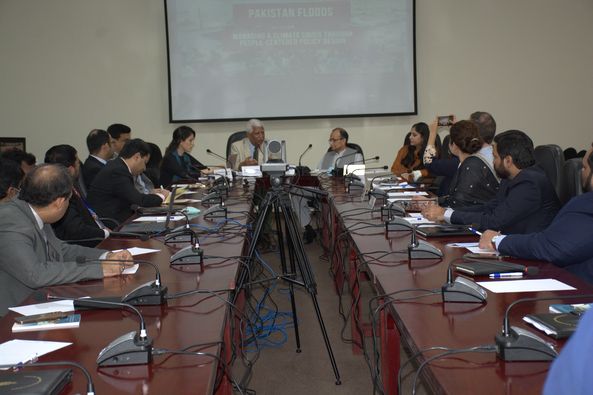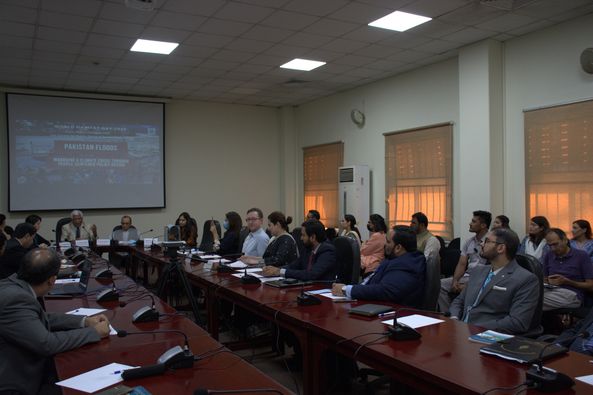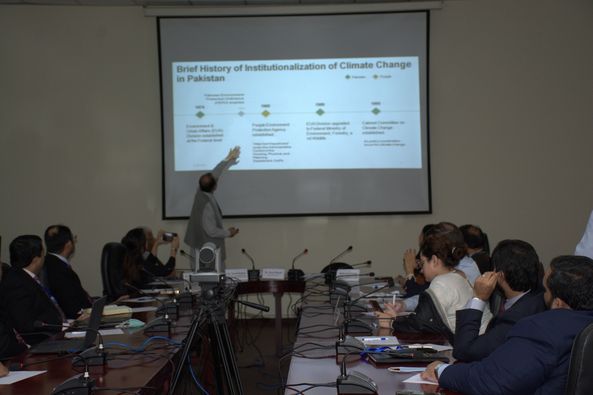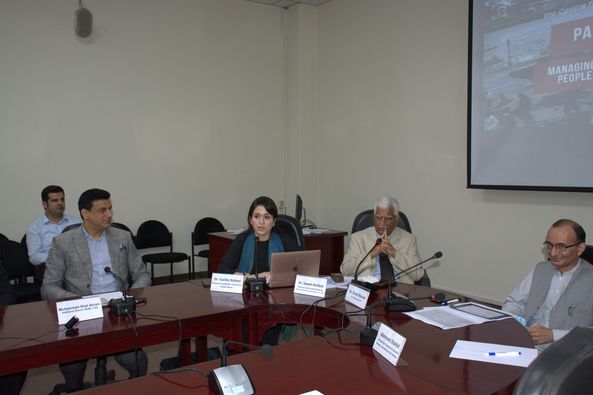
Pakistan Floods: Managing a Climate Crisis through People-Centered Policy Design
POLICY DIALOGUE
Past Event
Nov 5, 2022 - 2:00 pm |
Nov 10, 2022 - 12:00 am
Dr. Fazilda Nabeel
FCC Lahore
Upcoming Event
On 6th October 2022, CPPG organized a Policy Dialogue for World Habitat Day titled ‘Pakistan Floods: Managing a Climate Crisis through People Centered Policy Design’.
The Policy Dialogue invited various stakeholders and aimed to encourage a conversation on the range of aspects of climate governance and policy design while managing Pakistan’s disastrous floods. The panelists included Dr. Fazilda Nabeel, Provincial Coordinator for United Nation’s Living Indus Initiative, who spoke about ‘Green infrastructure and nature-based solutions for building climate resilience in communities in the Indus Basin’; Dr. Umar Masud CEO Urban Unit who presented on ‘Overcoming institutional dissonance to develop a shared perspective on climate action’ and Ms. Mehreen Shahid, Founding Director Safe Delivery Safe Mother who discussed ‘The role of Civil society organizations in disaster management: How can community-based
solutions be scaled up?’. Mr. Faisal Fareed, DG Punjab Disaster Management Authority was also present and spoke about the ground challenges in the public. sector response to floods. Invitees included public officials from the Civil Services, students, faculty members and guests from the US Consulate in Lahore.
It is not unknown to the development sector that Pakistan is ‘one of the top ten most vulnerable countries to climate change’— but the socio-political order fails to raise the right questions and develop a functional mechanism through which Pakistan’s climate response is depoliticized and made people-centric. Reactive
decision-making continues to dominate our response to environmental disasters like the recent floods, resulting in a passivity that allows the status quo to remain. The aim of the event was to challenge that practice, and raise awareness on what can be done to build institutional, organizational, social and economic resilience. A vigorous Q&A Session complemented the panel presentations and allowed open debate and discussion on the loopholes to the current management framework and what can be done to improve the situation.




